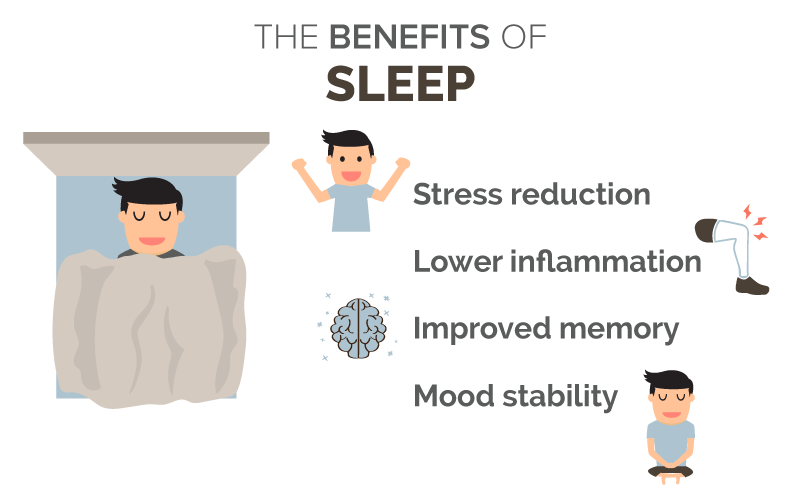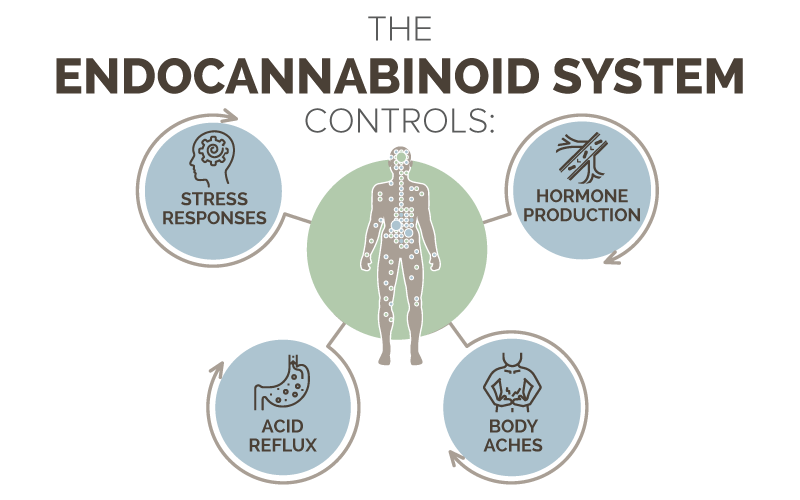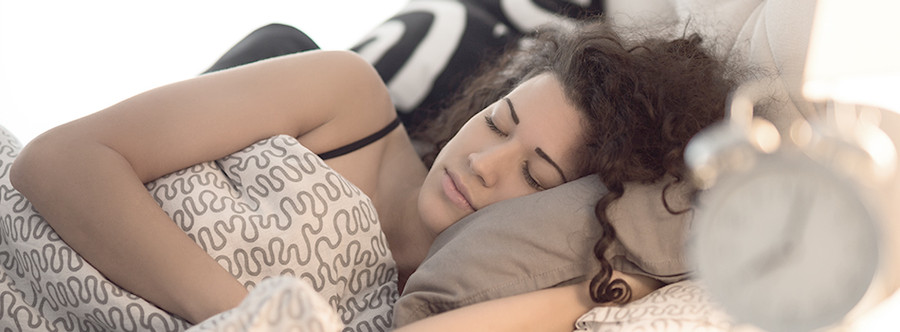The best things you can do for a good night’s sleep
Sabina King on Oct 15th 2019
Sleep. Who doesn’t love it? Along with diet and exercise, the benefits of sleep are well-accepted by pretty much everyone from doctors to yogis. Whether you want to increase productivity, get fit or recover from an illness faster, sleep can probably help you get there. On the flip side, a lack of sleep has been linked to fluctuations in hormones, poor brain function and lower immunity. If you’re having trouble with sleep and want to fix it, you’ve come to the right place.
The benefits of sleep
Experts tend to agree upon 6-7 hours as a reasonable amount of shut-eye, but some people may need more. Here are the benefits you stand to reap from a good night’s sleep:
Stress reduction
When sleep deprived, the body produces more stress hormones to keep you awake. Conversely, when you’re well rested, stress hormones are produced normally – which means, in response to stress.
Lower inflammation
A lot of stress hormones set of a process of flare-up responses in the system. Keeping their levels stable is a key way to prevent inflammation. Inflammation is tied to several severe and common health conditions.
 Improved memory
Improved memory
Even though science has not been able to definitively answer why we dream when we sleep, there is evidence that it plays a major role in memory consolidation. This means processing events, remembering the important parts and forgetting unnecessary material.
Reduced chances of depression
Sleep isn’t necessarily a way to treat depression, but it can help regulate stable levels of serotonin in the brain, which could be a way to defend against it.

What a lack of sleep can do
It goes without saying that a lack of sleep can cause accidents, harming either the person themselves or the public at large. Statistics show that sleepiness can slow reaction times as much as being drunk. But besides these concerns, it also wreaks havoc on one’s system.
Reduced mental sharpness
A lack of sleep impairs attention, alertness, concentration, reasoning and problem solving.
Serious health problems
A chronic lack of sleep can be tied to heart disease, heart attacks, high blood pressure, diabetes and strokes.
Mood swings
You probably know what it’s like to be cranky because you’re sleepy, so you can imagine what it’s like for insomniacs. They tend to be more prone to depression and other mood instabilities.
Lower immunity
A lack of sleep can lower the body’s defenses against common viruses and bacteria, like the flu virus.
Tips for a good night’s sleep
Create a sleep routine
According to Bill Fish, Certified Sleep Science Coach and founder of Tuck, we’re far too preoccupied with the quantity and not quality of sleep. He believes the first key to getting better quality of sleep is the sleep routine. “Our bodies are creatures of habit. Making a point to get in bed at the same time each night and wake up at the same time each morning will begin to ‘program’ your circadian rhythm, which is our 24-hour internal body clock.”
Julie Lambert, another sleep expert over at Happysleepyhead says that another way to set your body clock right is by increasing exposure to natural light. “Natural light is important for the proper functioning of your circadian clock. Studies show that exposure to bright light during the day is an effective way to combat insomnia and improve sleep quality.”
Nutritional Compounds
There are several nutrients, minerals and other compounds that support wellness, that are known for helping with sleep, the most popular of which are magnesium and CBD.
Magnesium
According to Caleb Backe, Health Expert and Sleep Specialist for Maple Holistics, a magnesium deficiency contributes to reduced serotonin. “It’s one of the most important neurotransmitters in regulating your sleep/wake cycle.” Renowned health expert and author of Hormone Balance, Carolyn Dean agrees. “Magnesium facilitates sleep regulating melatonin production. It also relieves the muscle tension that can prevent restful sleep and activates GABA, the main inhibitory neurotransmitter of the central nervous system.” Activation of GABA receptors is conducive to sleep.
However, magnesium supplements can come with unpleasant side effects, mainly diarrhoea. If that puts you off, don’t fret. A liquid picometer form of magnesium would be a better option. Dean says that this “results in direct and complete absorption into cells, bypasses a leaky gut, does not reach the large intestine and does not have a laxative effect the way other forms of magnesium can have.” Alternatively, you could also eat magnesium rich foods, including leafy greens, nuts and seafood.
CBD
CBD or cannabidiol works by supporting the endocannabinoid system or ECS. The ECS is like a master regulator for all the other systems in the body, keeping things in ‘balance’, so to speak. The ECS plays a role in several areas that can disrupt sleep: stress responses, acid reflux and gastrointestinal distress, hormone production and pain responses. By keeping these areas balanced and stable, you can support deeper, more restorative sleep without daytime sleepiness.

Make your bedroom conducive to sleep
We can spend a lot of time in bed not sleeping – and that’s a bad thing. According to Bill Fish, the second most important component to sleep quality is “to turn your bedroom into a sleep sanctuary.” What does this involve?
No clutter
Says Fish, “Clean up all clutter around the room and shut all closets. Clutter makes our mind race, and the bedroom should be set up for the sole purpose of relaxation and sleep.
No devices
According to Carolyn Dean, one of the biggest things we do that negatively affects our sleep is exposure to phones before bedtime. “The blue light is detrimental to our sleep because it negatively impacts melatonin production… Turn off devices at least an hour before bed.”
Keep it dark
During the nighttime, Dean asserts that you should make sure your bedroom is as dark as possible. “If streetlight shines through your curtains, put up blackout shades or blinds. Block any bright LED displays in your room. Use dim nightlights in the hallway and bathroom so you don’t have to switch on ceiling lights if nature calls during the night.”
Keep it cool
Dean also recommends keeping the bedroom between 60-65F at night. “Your body temperature naturally decreases during sleep. If your bedroom is too hot, it can affect the quantity and quality of your sleep.” She also says one should make sure the covers they sleep under are the right thickness to keep them comfortable and not too warm. “On hot summer nights, cool the room with a ceiling fan or a fan placed in front of an open window.”
Keep it comfy
Investing in a mattress that you like and a pillow that is comfortable isn’t wasteful - it’ll help you in the long run. Experts say that a medium-firm mattress is the best for a good night’s sleep. And when it comes to pillows, there are some excellent options out there. Back to Beauty Sleep makes it easier to sleep on your back, and as a bonus, it also helps with wrinkles and hair care. Looking great when you wake up is always a plus!
Clear your mind
There are several ways to practice clearing your head before bedtime. Meditation, either guided or unguided, might help with winding down before bed. You could also write and ‘purge’ your worries about the next day. Says Dean, “write down all of the things you have attention on so you can get to handling them or dealing with them in the daylight hours. Writing things down tends to free up your attention enough to fall back to sleep.”
Avoid naps
This might seem shocking, because magazines and internet articles proclaim the powers of napping, which are not completely unfounded. Says Julie Lambert, “Naps can give you a powerful mental boost — much more powerful than that of a cup of coffee. But only if you limit them to 30 minutes. In this case, your brain doesn’t enter the deep sleep stage and you avoid grogginess and sleep inertia upon awakening. At the same time, longer or irregular naps can mess with your internal clock and contribute to insomnia episodes.” Essentially, if you can’t keep your nap to 30 minutes, you might as well skip it altogether.
Exercise
Exercise is an excellent way to expend energy during the daytime, and studies suggest that even simple aerobic exercises could help with falling asleep. However, Lambert warns, “make sure that you don’t do that later than 2 hours before bedtime — increased agitation won’t help you sleep either.”
Watch your alcohol intake
One last drink before hitting the sack might help you fall asleep, but experts warn that it can affect the sleep structure. Lambert cautions that “alcohol reduces the REM-sleep percentage in the first half of the night, which is, however, followed by the REM rebound closer to morning hours. This means that you get poorer sleep during the night and have higher chances of getting nightmares.”
Snack wisely
The approach to foods is rather similar, according to Lambert. “Heavy meals and carbohydrate-rich foods can make you sleepy, but they’re also pretty challenging for your gut to digest. Spicy foods aren’t recommended either because they can raise your body temperature, which leads to sleep disruptions.” Avoiding these for a few hours before bedtime could help.
Sleep is something we’re all guilty of taking for granted, or not getting enough of. It’s only when the effects of sleeplessness catch up that one is spurred into taking action. Instead, let’s cultivate a healthier sleep/wake cycle for the long term. Just like healthy eating and exercise, good sleep is a gift that keeps on giving!
















